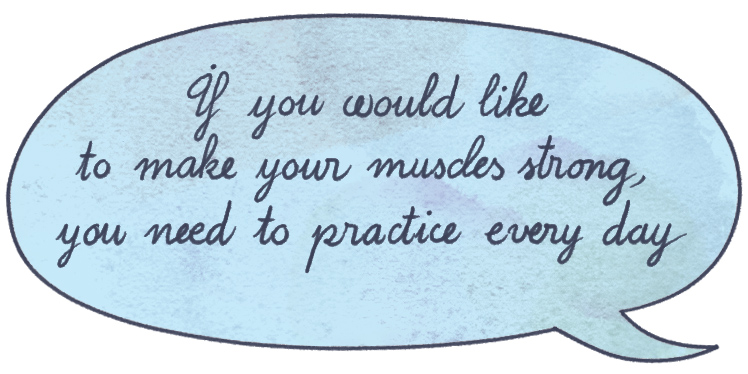





Practicing Coping Tools Copy

Many of the therapist-taught tools may not feel natural to children at first. In order to be fully effective, they need to be practiced frequently, several times a day, and in different contexts (home, school, outdoors, etc.). Coping tools are practiced first in situations when there is no distress or when distress is not too high, and then—after they feel confident in their skills, when they are distressed. For children to be able to understand the importance of practicing, the therapist use different child-friendly analogies, such as, “if you would like to make your muscles strong, you need to exercise every day,” “if you would like to play an instrument very well, you need to practice playing every day,” etc. The therapist should make sure that children are using the coping tools correctly and allocate time in the session to demonstrate their mastery.
Session 3 is an opportunity to continue teaching and practicing the coping tools as needed, and to have the child decide what to include in the toolbox. It is a good idea during review to ask the child to demonstrate some of the therapist-taught tools that they were practicing, just to make sure that they are doing it correctly.
